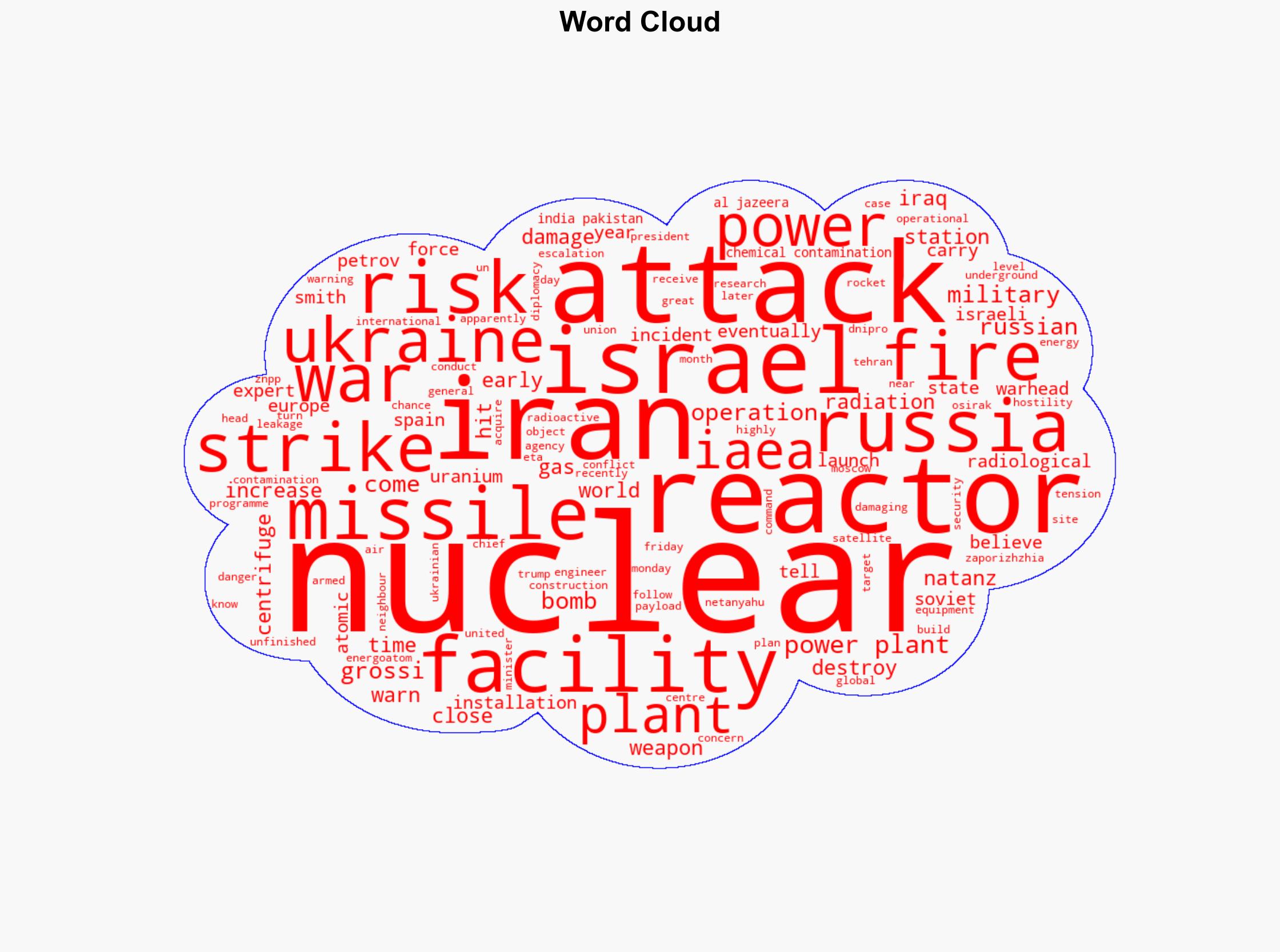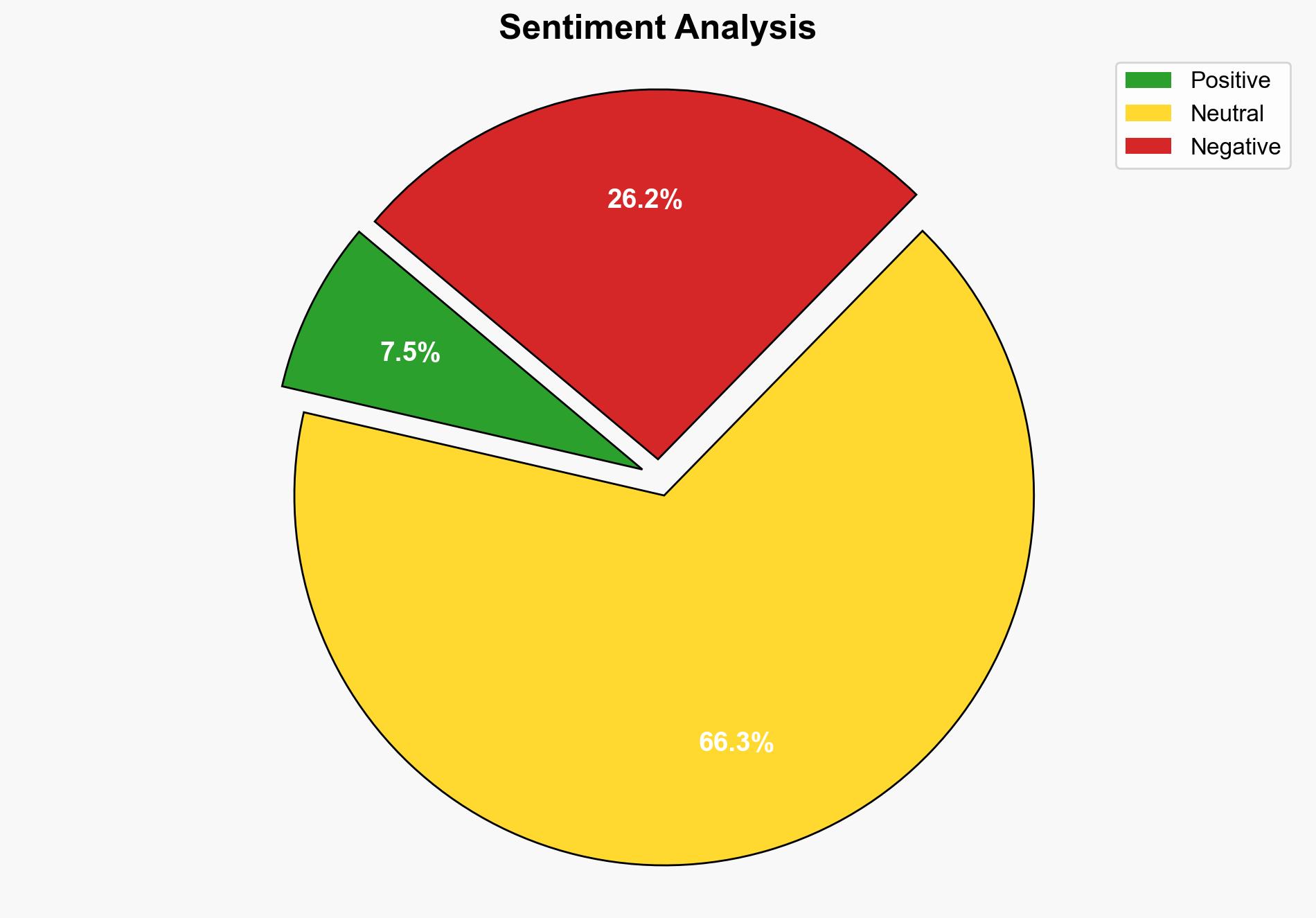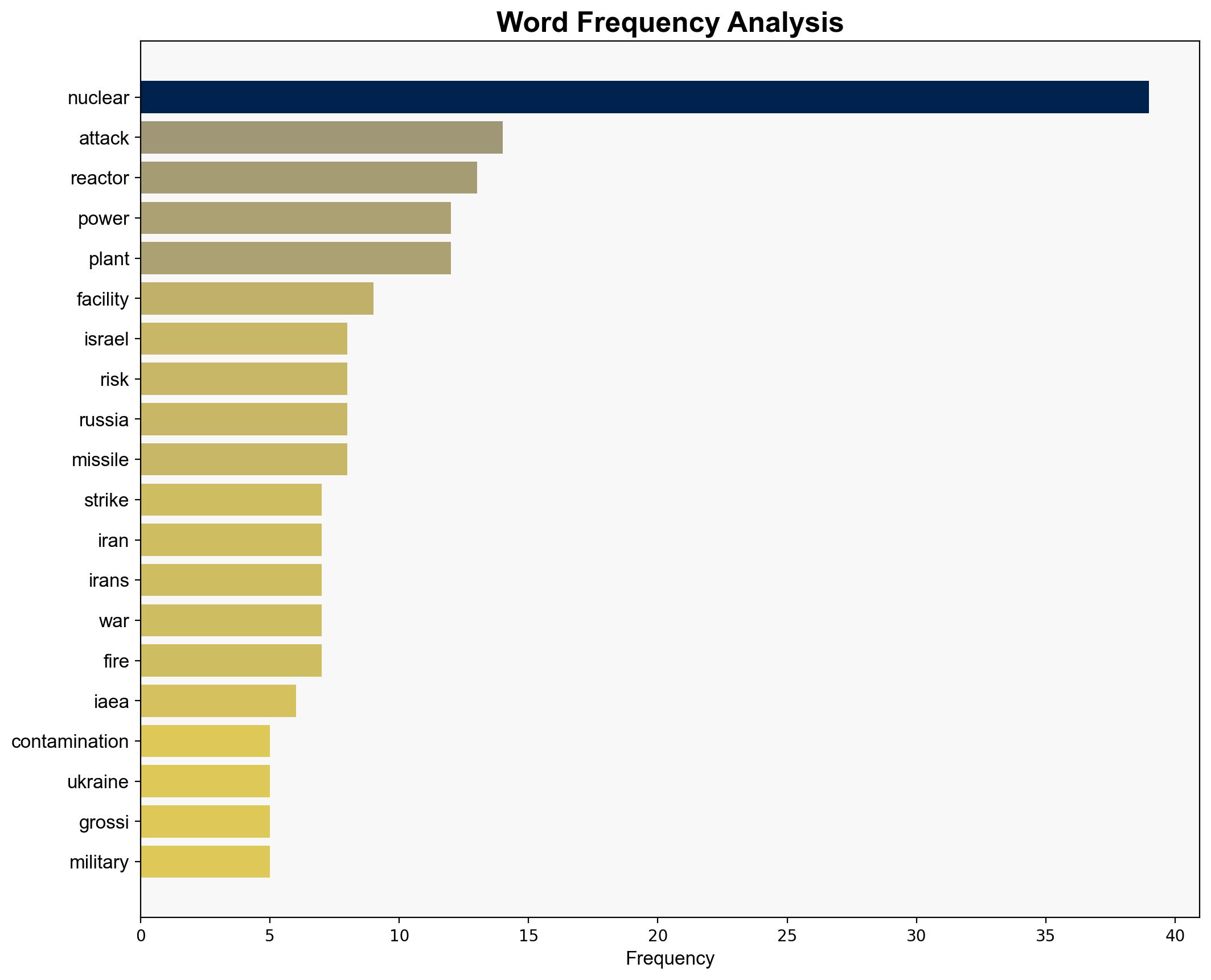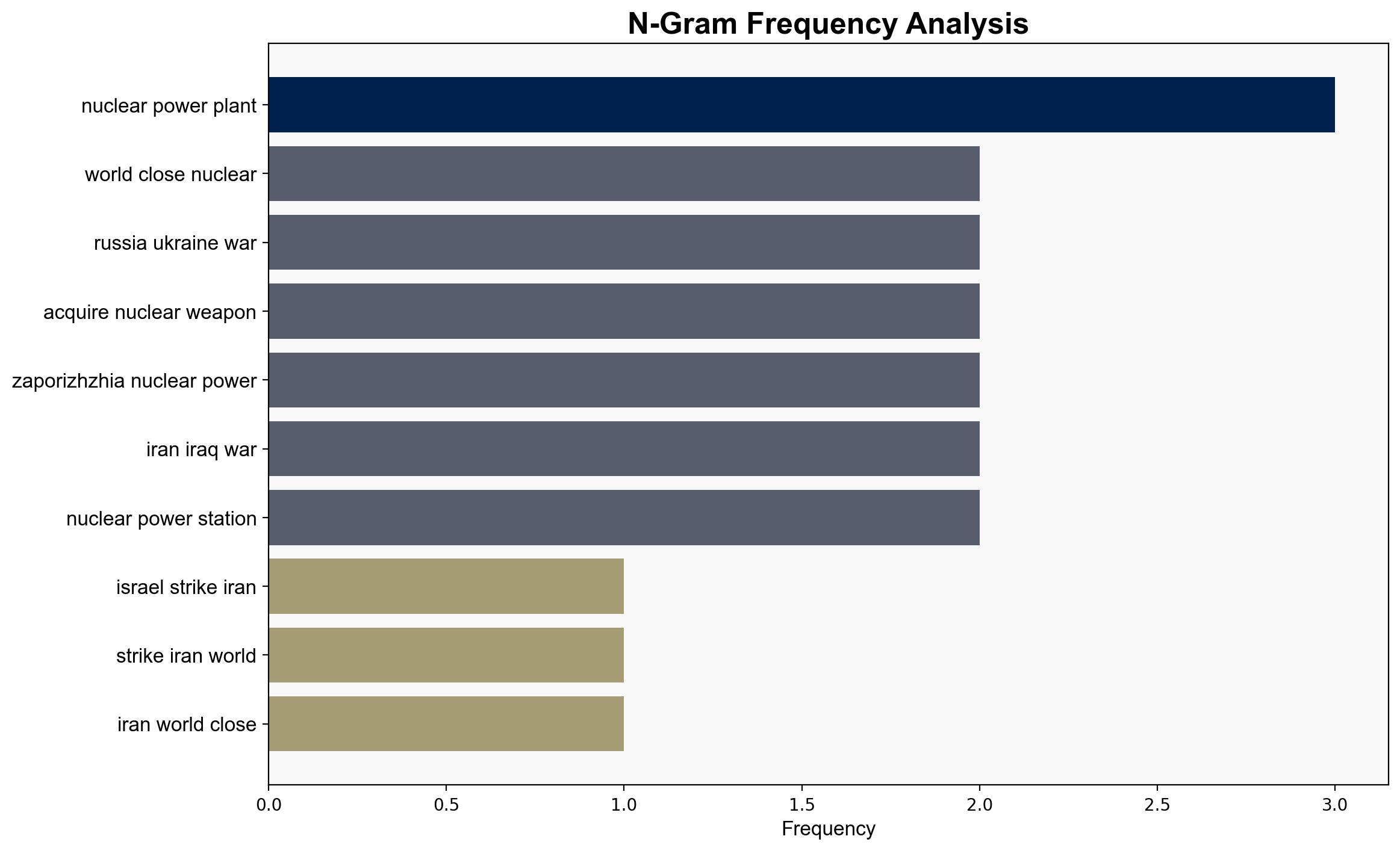Israel strikes Iran Is the world close to a nuclear radiation incident – Al Jazeera English
Published on: 2025-06-17
Intelligence Report: Israel Strikes Iran – Is the World Close to a Nuclear Radiation Incident?
1. BLUF (Bottom Line Up Front)
The recent Israeli strike on Iran’s nuclear facility at Natanz has heightened global concerns about potential nuclear contamination and regional instability. The attack underscores the risk of escalation into a broader conflict, with significant implications for nuclear safety and geopolitical dynamics. Immediate diplomatic engagement is recommended to de-escalate tensions and prevent further military actions.
2. Detailed Analysis
The following structured analytic techniques have been applied to ensure methodological consistency:
Causal Layered Analysis (CLA)
Surface events: Israeli airstrike on Natanz.
Systemic structures: Ongoing regional tensions and historical conflicts.
Worldviews: Differing perceptions of nuclear capabilities and intentions.
Myths: Long-standing narratives of existential threats and regional dominance.
Cross-Impact Simulation
The strike could exacerbate tensions between nuclear-armed neighbors India and Pakistan, and influence the ongoing conflict between Russia and Ukraine over nuclear facilities.
Scenario Generation
Scenarios range from successful diplomatic resolutions to uncontrolled escalation leading to regional conflict and potential nuclear incidents.
Bayesian Scenario Modeling
Probabilistic forecasts suggest a moderate likelihood of further military engagements, with a high risk of regional destabilization if diplomatic efforts fail.
3. Implications and Strategic Risks
The attack on Natanz poses significant risks of nuclear contamination, potentially affecting regional populations and the environment. The incident could also trigger retaliatory actions, increasing the likelihood of a broader military conflict. Economic disruptions are possible, particularly in global energy markets, given the region’s strategic importance.
4. Recommendations and Outlook
- Engage in immediate diplomatic dialogues to de-escalate tensions and establish communication channels between involved parties.
- Enhance monitoring and security measures at nuclear facilities to prevent further attacks and mitigate risks of contamination.
- Scenario-based projections:
- Best case: Successful diplomatic intervention leads to de-escalation and resumption of nuclear talks.
- Worst case: Escalation into a regional conflict with significant nuclear risks.
- Most likely: Continued tensions with sporadic military engagements and diplomatic efforts.
5. Key Individuals and Entities
Benjamin Netanyahu, Rafael Grossi, Kaja Kallas
6. Thematic Tags
national security threats, nuclear safety, regional stability, diplomatic engagement





